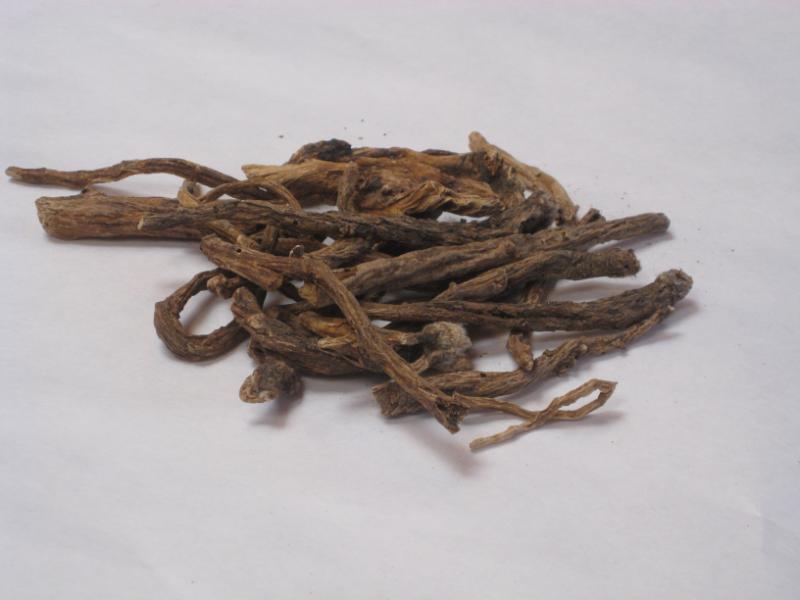Search in medicinals
Pulsatillae Radix
Pulsatilla [root]
白头翁 〔白頭翁〕 bái tóu wēng

Alternate English names: Chinese anemone [root]
Alternate Chinese names: 野丈人 yě zhàng rén; 胡王使者 hú wáng shǐ zhě; 白头公1 bái tóu gōng
Kingdom: Plant
Origin in PRC Pharmacopoeia: Pulsatilla chinensis (Bge.) Regel. (PRC Pharmacopoeia)
Origin in unofficial sources: Pulsatilla chinensis (Bge.) Reg.* [= Anemone chinensis Bge.]; Pulsatilla dahurica (Fisch.) Spr.; Pulsatilla koreana Nakai; Pulsatilla turczaninovii Krylov et Serg.; Pulsatilla ambigua Turcz. ex Pritz.
Use: Medicinal
Category: Heat-clearing agents / Heat-clearing toxin-resolving agents
Properties: Bitter; cold.
Channel entry: Large intestine and stomach channels.
Actions and indications:
- Clears heat, resolves toxin, and cools the blood: Diarrhea or dysentery caused by damp-heat or heat toxin.
- Interrupts malaria: Warm malaria.
- Other indications: Bái tóu wēng is also used for
genital itch with white vaginal discharge. For this, it can be decocted and used as a vaginal douche. It also can be combined with worm-killing itch-relieving medicinals such as Kǔ shēn (苦参 Sophorae Flavescentis Radix, flavescent sophora [root]) and Bǎi bù (百部 Stemonae Radix, stemona [root]). - Additional actions: Bái tóu wēng clears
large intestinal damp-heat and enters the blood aspect to stanch bleeding. It is able to stanch bleeding and disperse hemorrhoids when applied topically as a single agent.
Dosage and method: Oral: 6–15g in decoctions. It is also made into pills, vaginal washes, and enemas.
Warnings: Contraindicated in vacuity cold patterns of diarrhea and dysentery. Bái tóu wēng can cause irritation, so it should be used with care in enemas and vaginal washes.
Quality: Best are long neat roots that are gray-brown on the outside, and have white hairs springing from the head.
Production area: Liáoníng, Héběi, Hēilóngjiāng, Mongolia.
Back to search result Previous Next